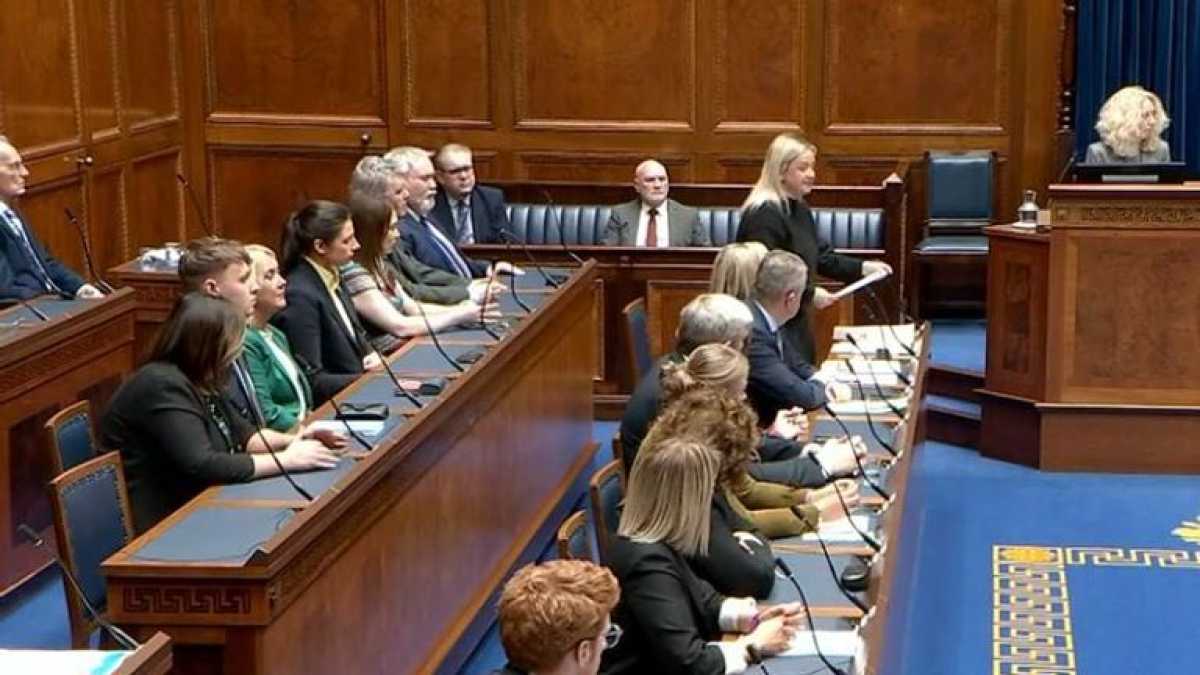Politics
Michelle O’Neill Becomes First Nationalist First Minister as Power-Sharing Returns to Northern Ireland

Michelle O'Neill has made history as she is appointed as Northern Ireland‘s first nationalist first minister. The Democratic Unionist Party (DUP) has also appointed Emma Little-Pengelly as the deputy first minister, marking the return of power-sharing. This move comes after the DUP ended its boycott over post-Brexit trade rules. The restoration of Northern Ireland’s devolved government coincides with the two-year anniversary of its collapse. The DUP had withdrawn its first minister in February 2022 in protest against additional checks and paperwork for goods moving between Northern Ireland and Great Britain.
The appointment of Michelle O’Neill as the first republican first minister of Northern Ireland is seen as a significant milestone. During her address to the chamber, O’Neill expressed her condolences for all lives lost during the conflict, without exception. She emphasized her commitment to serving everyone equally, regardless of their views on the future constitutional position of Northern Ireland. O’Neill vowed to prioritize inclusivity and respect as the government works together to meet the demands of the public.
The news of a nationalist first minister would have been unimaginable to her parents’ generation, O’Neill acknowledged. Despite her background and ideology, she assured those who identify as British and unionist that their national identity, culture, and traditions are important to her. This move towards power-sharing is seen as a new dawn and a historic day for Northern Ireland.
This development also sheds light on O’Neill’s background and journey to political leadership. Born Michelle Doris in a working-class family in Clonoe, County Tyrone, she faced challenges as a teenage mother. O’Neill persevered, completing her education and becoming a welfare rights adviser. In 2005, she won a seat on Dungannon borough council. As a member of Sinn Féin, she rose through the ranks, becoming a protege of Francie Molloy and Martin McGuinness.
O’Neill’s political career has not been without controversy. She comes from an IRA family and defends the legitimacy of IRA violence. However, she has also reached out to unionists by using less divisive language and accepting Police Service of Northern Ireland protection. The challenge ahead for O’Neill and her coalition government is immense, including addressing fiscal crises, infrastructure challenges, and restoring trust in Stormont‘s ability to govern effectively.
Despite differing views and painful histories, there is hope for a positive future in Northern Ireland. The return of power-sharing opens a new phase of history, and the exact outcomes remain uncertain. However, many, like Roy Crawford, an Ulster Unionist councillor, express hope and optimism for tangible and positive changes for all communities in Northern Ireland.












